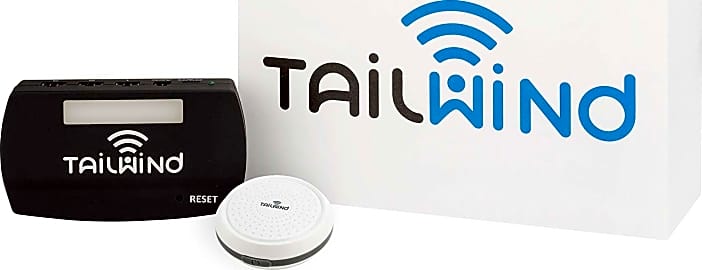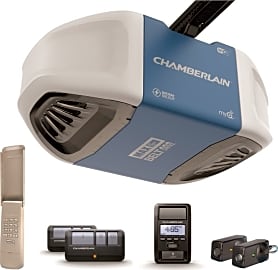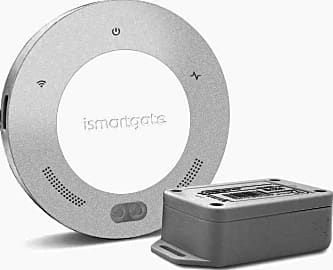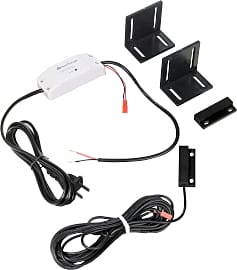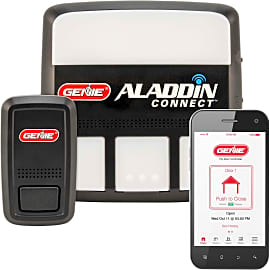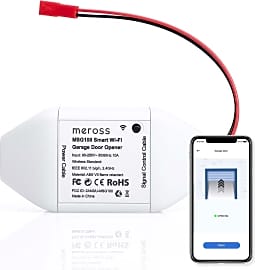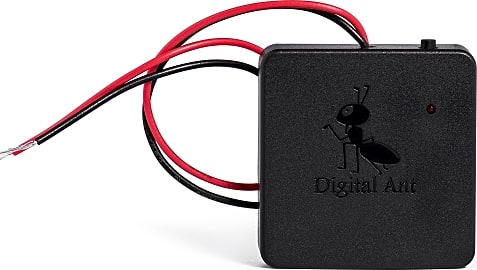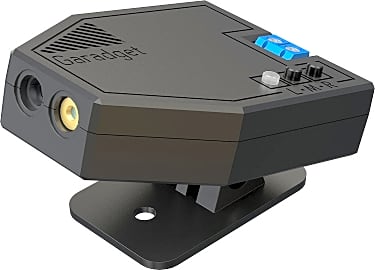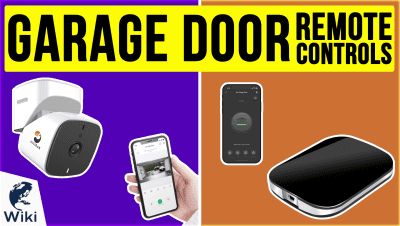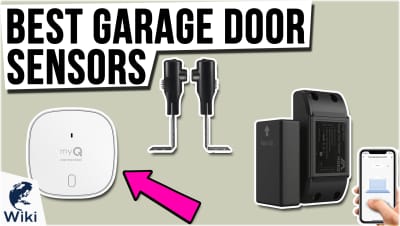The 10 Best Smart Garage Door Openers

This wiki has been updated 36 times since it was first published in December of 2016. A Wi-Fi, or smart, garage door controller is a worthwhile investment for those looking to automate their home. They can not only make it easier to get in and out of your garage, but can also provide enhanced security and peace of mind. They’re available with a range of options, including support for multiple doors and user accounts, and are compatible with most mechanical openers. When users buy our independently chosen editorial picks, we may earn commissions to help fund the Wiki.
Editor's Notes
September 21, 2020:
In today’s update, we moved the popular Chamberlain MyQ-G0301 into a more prominent position on the list. This simple device can be installed in just 15 minutes and, unlike most others, does not require any wiring. Once the app is on your smartphone, checking whether your garage door is open is as simple as looking at a graphic on your phone. In the app, it’s also easy to create daily schedules if you’d like the door to open or shut at set times. You can also view the full history of garage door activity, as well as add in control for additional doors. It works with Google Assistant, IFTTT, and other smart platforms. We still like the iSmartGate Pro for all it has to offer, including temperature sensing, integration with various IP security cameras, the ability to control automatic gates. The Tailwind IQ3 also remains a highly popular choice thanks, in part, to the ability to use it with vehicles that don’t have wireless connectivity. This is by way of a small sensor that can be placed inside the vehicle so that the device in the garage detects when you’re pulling into the driveway and opens the door. You can also set it to close the door automatically if it’s left open in the dark.
The Nexx NXG-100 is another choice that has a lot to offer, including built-in geofencing that allows it to know where you are based on your smartphone’s location, and to open or close the door automatically as you come and go. It also offers voice notifications through the app and can alert you in the event of high levels of carbon monoxide in your garage. It’s a good option as long as you don’t wish to use it with Apple HomeKit, with which is isn’t compatible. For a complete system that includes a belt drive garage door opener with battery backup, look to the Chamberlain B970. It comes with built-in Wi-Fi, an exterior keypad, two 3-button remote controls, a motion detecting control panel, and two safety sensors. It’s known for its quiet operation and its anti-vibration technology, and works well even in tough weather conditions like extreme temperatures and humidity. As stated in our previous Editor’s Note, be sure to check that any model you’re interested in is compatible with your model of garage door opener, as well as any smart home hub with which you wish to use it.
July 24, 2019:
Most smart garage door openers exist as wireless electronics controllers that are installed alongside one of the many physical appliances responsible for opening garage doors. Chamberlain is one of the few companies that makes all-in-one units including a motor and drive system, and the B970 is one of their best. If you're looking for a complete system overhaul, it's a great place to start looking, as it's also quieter than many dedicated openers that don't have automated functionality.
If you're happy with the mechanical unit powering your door, either iSmartGate can make a great companion to it. They're both among the easiest to use; the differences relate to how many doors they control and how many secondary advanced features they offer. The Meross and Genie are two of the least expensive, and the Meross even provides detailed instruction on how to install it alongside mechanical systems that many others claim to not be compatible with. It may take a little logic and tech know-how to get working, but quite a few users report success, even with "yellow" units, or those using the Security 2.0 protocol. The Digital Ant is another well-priced unit. Then there are the mid-range Tailwind, Nexx, and Garadget, which offer most of the functionality of more expensive units, and though they're twice the price of the entry-level models, they're still not terribly expensive. Whichever you've got your eye on, you will need to research your current setup and make sure that the gateway you're interested in is compatible with your model of opener. There are several different colors of "learn buttons" that denote different types of wireless security, and not every smart device is compatible with every form of encryption.
Special Honors
OmiFob This shortcut remote for your smart devices can be used to open and close the garage, lock the front door, turn the security system on and off, control the smart lights, and set the thermostat. It’s like having multiple smart buttons and fobs in one device. It works with Samsung SmartThings as well as Yonomi Ecosystem, and can be connected with MoboKey, Chipolo, and Nexx Garage. mykeyport.com
What Makes A Garage Door Opener Smart?
They simply integrate with your current garage door opener, giving you control and access to myriad new features from your smartphone, tablet, or computer.
Every passing day, it seems, a new appliance, accessory, or similar everyday item joins the growing ranks of the Internet of Things. When you hear someone throwing around terms like Wi-Fi connectivity, Bluetooth capabilities, digital data encryption, and automated smartphone alerts, you probably assume they’re spouting off about their fancy new car or the latest Apple product. Of course, you could be correct in that assumption, but it’s equally possible that they were listing off the features of their new smart garage door opener.
While the wireless garage door opener is older than the internet, modern technology has made it easy and affordable to monitor and share access to your garage from anywhere in the world with your smartphone. These devices don’t replace your existing garage door opener, nor do they prevent other garage-opening tools like push buttons and keypads from working. They simply integrate with your current garage door opener, giving you control and access to myriad new features from your smartphone, tablet, or computer.
Most models basically serve as a plug-and-play system, as all you need to do is install the door sensor, plug the device into a power supply, and make sure it’s connected to a reliable Wi-Fi signal. Using a mobile app, users can open and close the garage door, receive reminders if it has been left open, manage who has access to the garage, and control lights and sounds. Many even offer video capabilities, which allow you to check in visually whenever you want.
If you like your garage door to be open at certain times of the day, you can set rules for automatic opening and closing and apply them to different dates and times. Some units include the ability to create scenes, which is nice for users who prefer an exceptionally personalized experienced. For example, you can program a pre-set scene that, when activated, will open the garage door, turn on the lights, and play music.
For those of you who can’t live without your digital companions — Siri, Alexa, or Cortana — we have good news: some smart garage door openers will integrate with these AI assistants. This creates an even higher level of convenience, as it allows you to take advantage of useful features via voice command.
Motivation For Making The Switch
Few will argue against the value of being able to check whether or not you left the garage door open when you’re hundreds of miles away on vacation. Aside from that, however, some of you may question whether a smart garage door opener is worth the trouble. The truth is, there’s very little trouble involved.
As previously mentioned, the majority of these are easy to install, requiring less than an hour and little to no handyman skills in most cases. They’re also affordable, and since you’re already paying for your phone and internet access, there are no additional maintenance costs.
If you're having trouble determining this, try contacting company support for the brand in which you’re interested.
You don’t have to be a home automation guru to appreciate the usefulness of a smart garage door opener — it’s a nice, introductory item that will make your life easier and help you familiarize yourself with connected devices. Plus, imagine how much more secure you'll feel when you know your garage's level of vulnerability and who has access to it at all times.
If your current garage door opener is in the midst of its twilight years, there’s a chance you’re looking for a whole new package. For those of you in this situation, all-in-one smart garage door openers are available, albeit at a higher cost than a simple controller with smart features.
The one area where things may get a little tricky is ensuring that the controller you select is compatible with the system you currently have in place. Unfortunately, not all of these controllers will work with all garage door openers. If you plan to integrate a new smart garage door opener, make sure to check whether it’s compatible with your exact model first. If you're having trouble determining this, try contacting company support for the brand in which you’re interested.
The Garage Door Opener Has Come A Long Way
If you've taken an American history course, you're familiar with the Model T, the revolutionary automobile Ford Motor Company first introduced to the world in 1908. Thanks to advancements in assembly line production, it became the first car that was practical and affordable enough for a common American family to own and maintain.
American consumers agreed, and these garage door opening mechanisms never went mainstream.
As motor vehicles gained popularity in America, people realized that they needed a safe place to house them. Enter the overhead garage door, which first appeared in 1921, and the subsequent introduction of the electric garage door opener in 1926. These early versions consisted of two remote-operated switches — one inside the garage and the other attached to a post outside — which was not exactly the most convenient design. American consumers agreed, and these garage door opening mechanisms never went mainstream.
Remote control openers increased in popularity throughout the 1950s and 1960s, though one glaring issue remained: they were easy to hack. Technological advances in the 1970s led to more secure models, though these did not address the issue of physical safety, as people were still getting injured with some degree of regularity. In 1993, officials passed a federal law mandating a minimum level of safety for all garage door openers. Incidents of injury and death have declined significantly since then.
Fast forward a couple of decades, and the age of the internet-connected garage door opener playing a key role in home automation systems has arrived. We live in a digital world, where we use our smartphones to have face-to-face conversations with friends on the other side of the planet, monitor our heart rates and sleeping habits, and consume all types of media at a moment’s notice. Are we really surprised that we can now manage our garage doors from the palms of our hands, as well?



